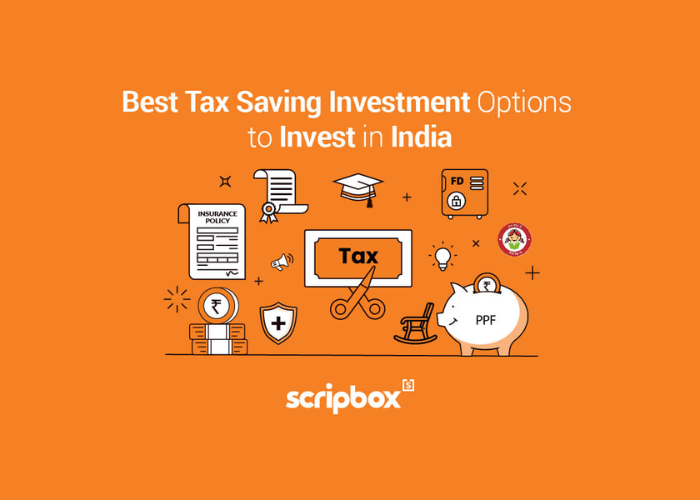Taxes are an unavoidable part of life, but that doesn’t mean you should accept them without a fight. While you can’t necessarily avoid taxes, numerous tax-saving investment options can help you reduce the amount of tax you owe and maximize your financial return. Investing in tax-saving instruments not only reduces your tax burden but also has the potential to generate long-term wealth and financial security.
What are Tax-Saving Investment Options?
Tax-saving investment options are financial instruments designed to help you reduce your tax liability. These investments are typically tied to specific tax benefits, such as deductions, credits, or deferrals. When you invest in tax-saving instruments, you can save money on your taxes by reducing your taxable income or qualifying for tax credits.
Tax-saving investments refer to investments made by an individual to lower their taxable income and gain tax deductions in the form of exemptions and deductions. Tax-saving investments can be made in a variety of products such as mutual funds, insurance plans, fixed deposits, and even real estate.
These investments need to be made before the end of the financial year to gain benefits from the same. Tax-saving investments are classified under Section 80C of the Income Tax Act, of 1961. By investing in these instruments, taxpayers can save on their tax liability for the financial year.
Investment in fixed deposits is one of the most popular tax-saving investment options. These deposits provide regular income and come with a tax benefit of up to Rs. 1.5 lakh under Section 80C. However, the interest earned from these deposits is taxable.
Benefits of Investing in Tax-Saving Instruments
Tax-saving investments are beneficial for a variety of reasons. First and foremost, they can help you reduce your taxable income and save money on taxes. By investing in tax-saving instruments, you can save money on your taxes by reducing your taxable income or qualifying for tax credits.
Additionally, tax-saving investments can provide you with long-term financial security. By investing in instruments such as tax-exempt bonds or retirement accounts, you can put away money for the future and build up a nest egg for yourself and your family.
Tax-saving investments can also provide you with greater control over your finances. By investing in tax-saving instruments, you can determine when and how to pay taxes on your earnings. This allows you to better manage your tax liability and plan for the future.
Types of Tax-Saving Investments
Tax-saving investments come in many forms, and each type of investment offers different benefits. Here are some of the most common types of tax-saving investments:
Tax-exempt bonds: These are bonds that are not subject to federal, state, or local taxes. As a result, the interest earned on these bonds is not subject to tax.
Tax-deferred annuities: An annuity is an investment that allows you to set aside money and earn regular payments over a set period. By investing in a tax-deferred annuity, you can save money on taxes by deferring or eliminating your taxable income.
Retirement accounts: Retirement accounts such as 401(k)s and IRAs are a great way to save for the future and reduce your taxable income. When you contribute to these accounts, you can save money on taxes by deferring or eliminating your taxable income.
Key Considerations to Apply Tax Savings Strategies
When investing in tax-saving instruments, it’s important to consider a few key factors. First, be sure to research the tax implications of the investment. This will help you understand the benefits and drawbacks of the investment and decide whether or not it’s right for you.
Second, you should also consider your long-term financial goals. Different types of tax-saving investments may be better suited to different goals, so it’s important to consider your personal financial objectives before investing.
Finally, it’s important to understand the tax implications of withdrawing money from a tax-saving instrument. Withdrawing money from a tax-saving instrument may result in tax liability, so it’s important to understand the potential implications of withdrawing funds before doing so.
Conclusion
Tax-saving investments can help you reduce your tax liability and maximize your financial return. By investing in tax-saving instruments, you can reduce your taxable income or qualify for tax credits. Additionally, tax-saving investments can provide you with long-term financial security and greater control over your finances. When investing in tax-saving instruments, it’s important to consider the tax implications, your long-term goals, and the potential tax implications of withdrawing money. By considering these factors, you can maximize your financial return and reduce your tax burden.










